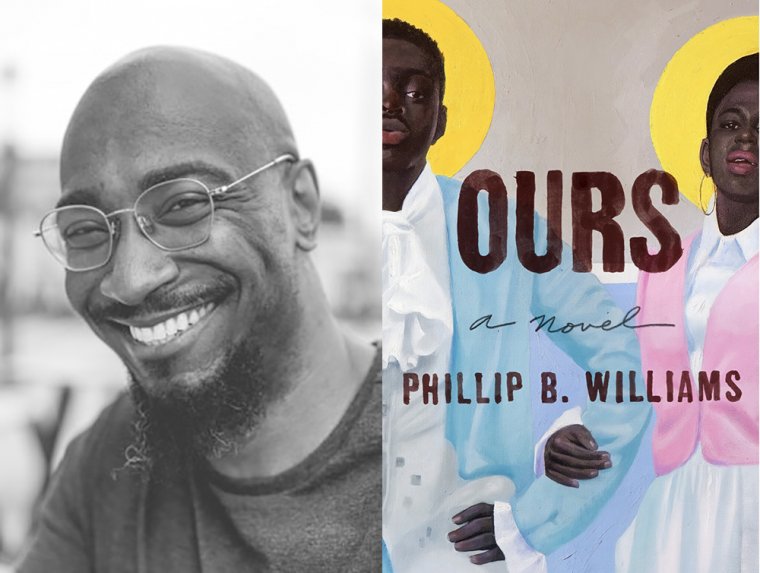This week’s Ten Questions features Phillip B. Williams, whose debut novel, Ours, is out now from Viking. In this historical narrative with a supernatural twist, the plantations of 1830s Arkansas are overtaken and liberated by a heroic woman named Saint, who wields immense, otherworldly power. Under Saint’s aegis, the formerly enslaved people travel to a hidden town where they are able to build lives for themselves and their families. For a time, they live in a kind of paradise, without fear of violence or persecution by outsiders. But eventually the shelter provided by Saint begins to feel constrictive, and the town’s residents wonder if they are truly safe within the narrow bounds their savior has measured for them. Kirkus praises Ours, calling it “a gorgeously written, evocative saga of Black American survival and transcendence, blending elements of fantasy, mythology, and multigenerational history.” Phillip B. Williams is the author of two collections of poetry: Thief in the Interior (Alice James Books, 2016), which was the winner of the Kate Tufts Discovery Award and a Lambda Literary Award, and Mutiny (Penguin Books, 2021), which won a 2022 American Book Award. A recipient of a Whiting Award and fellowships from the Radcliffe Institute for Advanced Study at Harvard University and the National Endowment for the Arts, Williams teaches in the MFA program in creative writing at New York University.

Phillip B. Williams, author of Ours. (Credit: Nicholas Nichols)
1. How long did it take you to write Ours?
Sixteen years, from 2006 to 2022.
2. What was the most challenging thing about writing the book?
Having patience enough to allow myself to fully discover and build the vision.
3. Where, when, and how often do you write?
I can only write in places that feel like home, so my own home, a close friend’s place, etcetera. I cannot write in public places. I write whenever it feels best to do so. It can be late at night or in the afternoon. Rarely do I write in the morning because rarely am I ready to do anything in the morning. I do not write as often as I used to. It comes in spurts, during which I write compulsively until the project is complete. Most of my time is spent doing the other, often disregarded, activities of writing: thinking and reading.
4. What are you reading right now?
Right now I am reading Tayari Jones’s novel An American Marriage and Michael Dumanis’s second collection of poems, Creature.
5. Which author or authors have been influential for you, in your writing of this book in particular or as a writer in general?
Gabriel García Márquez, José Saramago, Toni Morrison, Sonia Sanchez, Brigit Pegeen Kelly, Thomas Glave, Amos Tutuola, John Steinbeck, Zora Neale Hurston.
6. What is one thing that surprised you during the writing of Ours?
That characters talk back. My process of writing Ours was basically one long free-write. I didn’t have an outline; so much of the plot revealed itself to me as I was writing. This posed an interesting problem: I felt that I both guided the story and was guided by it. Imagine me pacing my home, talking aloud to no one present (except in my mind), asking, “Are you sure you want to do that?” Then I would write the scene and shake my head in disbelief that a character wanted to do that.
7. What is one thing your agent or editor told you during the process of publishing this book that stuck with you?
They both shared the sentiment that the book will have a life of its own and that said life would be major.
8. If you could go back in time and talk to the earlier you, before you started Ours, what would you say?
Nothing. I’m not about to change the trajectory of what I’ve created. If I encourage younger me, I might get cocky. If I warn younger me, I might take fewer risks. I’m not saying a thing.
9. What forms of work, other than writing, did you have to do to complete this book?
Lots of sleep. You will see this appear more and more in interviews. I was and remain exhausted after finishing this book. Finding time to rest, comfortable enough blankets, the right rain sounds, the best candle—all of this was necessary work to unwind from the endless writing schedule that was Ours.
10. What’s the best piece of writing advice you’ve ever received?
Read.








